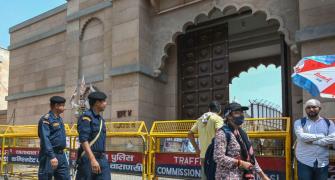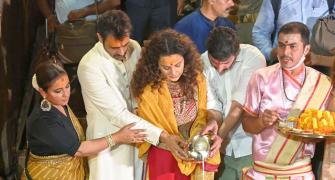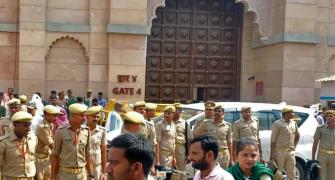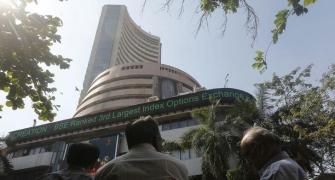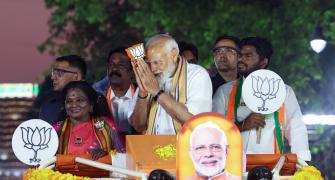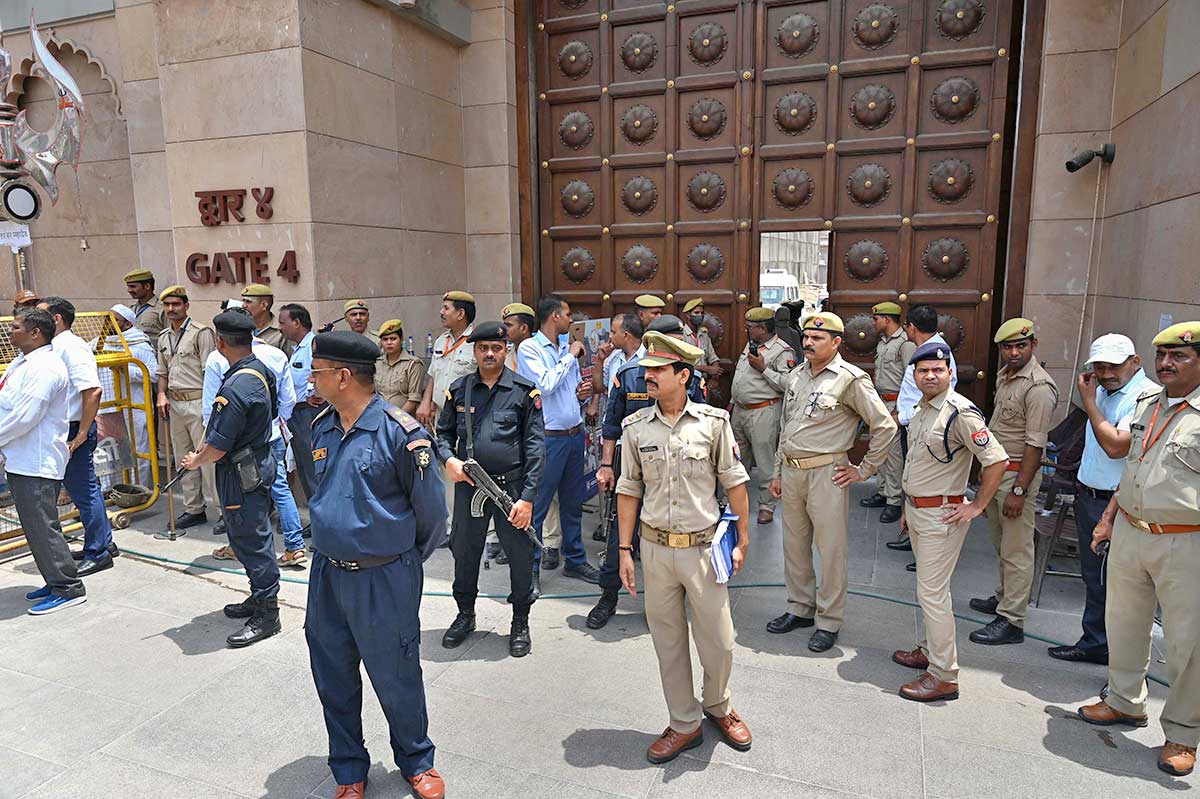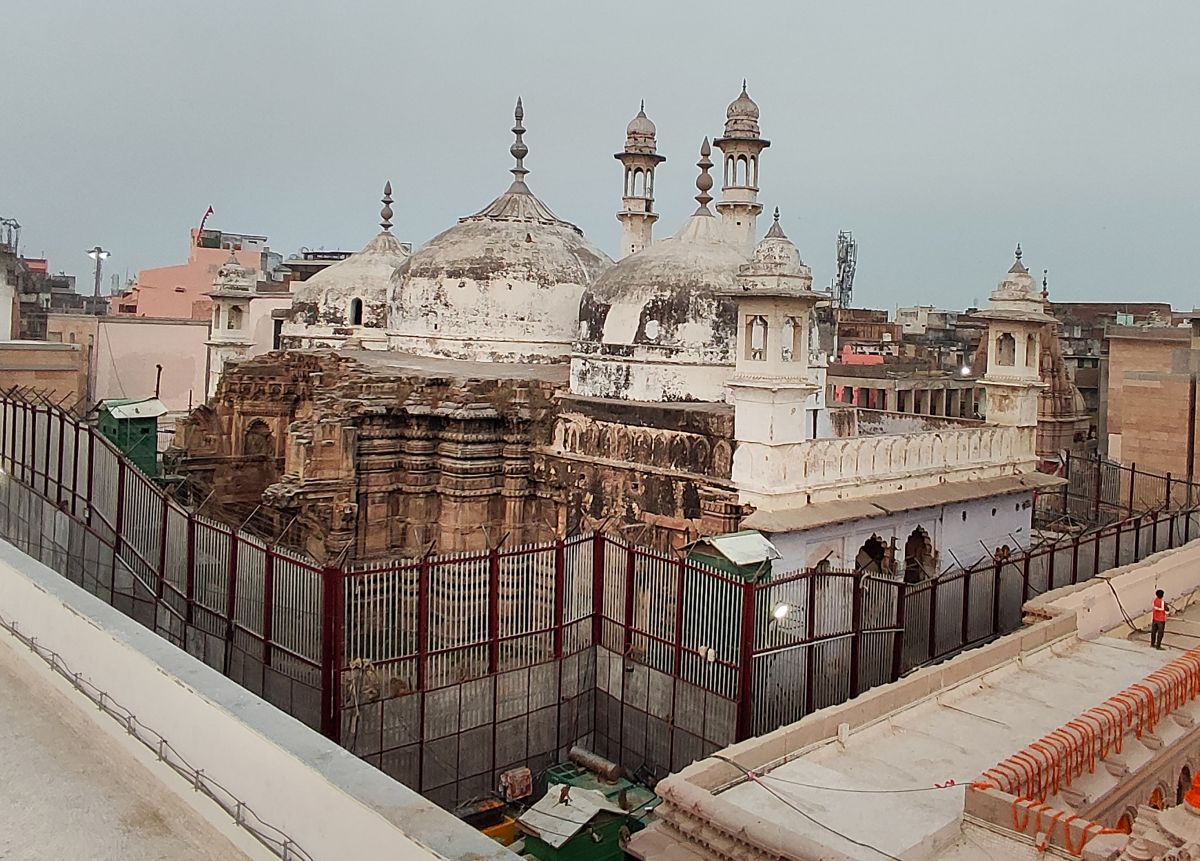The Supreme Court Friday observed that ascertaining the religious character of a place of worship is not barred under the Places of Worship Act of 1991.
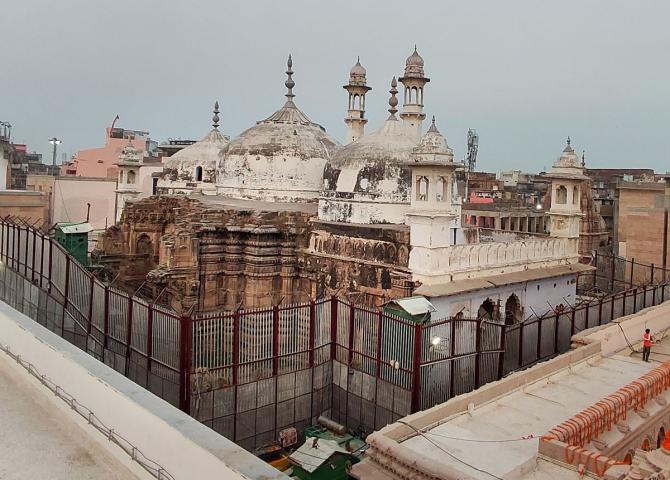
A bench of Justices D Y Chandrachud, Surya Kant, and P S Narasimha made the important observation during an hour-long hearing of the Gyanvapi mosque dispute and said that it has dealt with provisions of the Places of Worship Act in its 2019 Ayodhya verdict and section 3 does not expressly bar ascertaining of the religious character of the place of worship.
"We have dealt with the provisions in our Ayodhya verdict. The ascertainment of the religious character of the place of worship is not expressly barred," the bench said and also clarified that it is not its opinion but is in dialogue with the parties.
Justice Chandrachud, who made the observation, was also part of the five-judge bench that delivered its verdict on the Ayodhya dispute in 2019.
The judge said, "Suppose there is an Agiyari (a Parsi fire temple) and there is a Cross in another segment of the Agiyari in the same complex. Does the presence of an Agiyari make the Cross an Agiyari? Does the presence of the Cross make the Agiyari a place of Christian worship? Therefore if you have this hybrid character forget this arena of contestation. This hybrid character is not unknown in India."
Justice Chandrachud further said, "What is the Act of 1991 therefore recognises. The presence of the Cross will not make an article of Christian faith into an article of the Zoroastrian faith. Nor does an article of Zoroastrian faith make it a structure of Christian faith. Therefore, at some level the survey whether the trial judge went far beyond his remit and whether it was appropriate, we will not hazard ourselves by rendering an opinion in the order at this stage. We are also concerned about these issues but the ascertainment of the religious character of a place as a procedural instrument may not necessarily fall foul of the provisions of sections 3 and 4 of the Act of 1991."
The top court was hearing a plea of the Committee of Management Anjuman Intezamia Masjid which manages Gyanvapi mosque in Varanasi challenging the order of Allahabad high court by which it had refused to interfere with the civil court order to appoint a court commissioner to survey the mosque area.
Senior advocate Huzefa Ahmadi, appearing for the Mosque committee said, "This will cause grave public mischief, which the Act of 1991 tried to avoid. A narrative is being built. We cannot leave these issues pestering. The Commission's reports are being leaked selectively and disrupting the communal harmony, which the 1991 Act wanted to avoid. Don't look at this from the point of one suit alone but look at its ramification across the country."
The bench said that it will not allow the trial court to run amok and every endeavour should be made by the parties to soothe the frayed nerves by not selectively leaking the commission's report, it is for the trial court to open it.
"We have tried to create a balance by our orders. Our orders will preserve that sense on the ground. If we dispose of your appeal challenging the appointment of court commissioners, then the civil court order will attain finality. Therefore we are keeping the appeal (SLP) pending and in the meantime your application under Order 7 Rule 11 will be taken up by the trial court," the bench said.
Senior advocate Ranjit Kumar, appearing for some of the Hindu devotees, said that application under Order 7 Rule 11 will have to be gone into by the trial court.
Ahmadi then read the provisions of the Places of Worship Act, 1991, and said that the suit which was entertained by the civil court is barred as it tries to change the character of the religious place.
He said that though the court allowed Muslims to offer namaz in the mosque, a certain area of it is sealed and they are not allowed to take water from the tap to do wazu (ablution).
"There are police and iron gates all over. The status quo has been altered. Even after the order was passed by the court, people are not allowed to take water from the tap.
"The area falls in the middle of the tank. From the sides, you have taps where people used to do 'wazu'. The access needs to be granted," he said.
Solicitor General Tushar Mehta, appearing for the UP government, said that these facts which are being stated may not be correct as alternative arrangements have been made for doing 'wazu' and the protection is provided to avoid any law and order problem.
Senior advocate CS Vaidyanathan, appearing for one of the Hindu devotees, said that the area has been sealed to protect it from desecration.
On May 17, the top court had directed the district magistrate of Varanasi to ensure the protection of an area inside the Gyanvapi-Shringar Gauri complex where a 'Shivling' is said to have been found during a survey and allowed Muslims to offer namaz and perform 'religious observances'.
The Muslim side has been referring to the Places of Worship (Special Provisions) Act, 1991 and its Section 4 which bars filing of any suit or initiating any other legal proceeding for a conversion of the religious character of any place of worship, as existing on August 15, 1947.
The civil court is hearing a suit by a group of women seeking permission for daily worship of Hindu deities whose idols are located on an outer wall of the mosque.
The original suit was filed in 1991 for the restoration of the ancient temple at the site where the Gyanvapi mosque currently stands.

